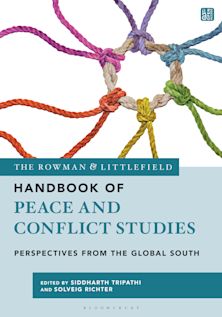- Home
- ACADEMIC
- Politics & International Relations
- Security and Strategic Studies
- The Rhetoric of Terrorism and Counterterrorism
The Rhetoric of Terrorism and Counterterrorism
This product is usually dispatched within 1 week
- Delivery and returns info
-
Free US delivery on orders $35 or over
You must sign in to add this item to your wishlist. Please sign in or create an account
Description
Richard Leeman analyzes the possible discursive responses to terrorism, prescribing democratic rhetoric as the most strategic counterterrorist response available. He examines counterterrorism as a response to terrorism, considering each side as one-half of a dialogue. Given the inherently anti-democratic nature of terroristic discourse, he hypothesizes that the best discursive strategy is to shift the dialogue to different grounds, i.e., to use democratic rhetoric.
As a test of his hypothesis, the author considers the responses of the Reagan and Nixon administrations to acts of terrorism. The Reagan administration's response to international terrorism provides an example of wholly non-democratic counterterrorist discourse. Leeman's case study suggests that this was a failed rhetoric. The Nixon administration, on the other hand, used a mixed democratic and non-democratic terrorist rhetoric in response to terrorism. Leeman argues that the non-democratic elements of the discourse subverted the democratic elements, thus leading to an ineffective use of discourse for the purpose of counterterrorism. Leeman thus concludes that a wholly democratic rhetoric is the best discourse available for the counterterrorist speaker or writer. This is the first book to specifically address the rhetoric of terrorism and counterterrorism, and prescriptively suggests how America can address the problem of terrorism through discourse. This unique book will be provocative reading to those in the fields of speech communication, political science, history, sociology, and the mass media.
Table of Contents
The Problem of Terrorism
Rhetorical Strategies of Reflection
The Rhetoric of Terrorism
Counterterrorism Rhetoric: A Reflective Strategy
Democratic Rhetoric: A Non-Reflective Strategy
The Counterterrorist Rhetoric of the Reagan Administration
The Counterterrorist Rhetoric of the Nixon Administration
Conclusions
Selected Bibliography
Index
Product details
| Published | Jan 21 1991 |
|---|---|
| Format | Hardback |
| Edition | 1st |
| Extent | 232 |
| ISBN | 9780313275876 |
| Imprint | Praeger |
| Dimensions | 9 x 6 inches |
| Series | Contributions to the Study of Mass Media and Communications |
| Publisher | Bloomsbury Publishing |



































